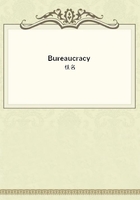
第38章 THREE-QUARTER LENGTH PORTRAITS OF CERTAIN GOVERNME
In the Rabourdin bureau was a clerk who played the man of courage and audacity, professed the opinions of the Left centre, and rebelled against the tyrannies of Baudoyer as exercised upon what he called the unhappy slaves of that office. His name was Fleury. He boldly subscribed to an opposition newspaper, wore a gray hat with a broad brim, red bands on his blue trousers, a blue waistcoat with gilt buttons, and a surtout coat crossed over the breast like that of a quartermaster of gendarmerie. Though unyielding in his opinions, he continued to be employed in the service, all the while predicting a fatal end to a government which persisted in upholding religion. He openly avowed his sympathy for Napoleon, now that the death of that great man put an end to the laws enacted against "the partisans of the usurper." Fleury, ex-captain of a regiment of the line under the Emperor, a tall, dark, handsome fellow, was now, in addition to his civil-service post, box-keeper at the Cirque-Olympique. Bixiou never ventured on tormenting Fleury, for the rough trooper, who was a good shot and clever at fencing, seemed quite capable of extreme brutality if provoked. An ardent subscriber to "Victoires et Conquetes," Fleury nevertheless refused to pay his subscription, though he kept and read the copies, alleging that they exceeded the number proposed in the prospectus. He adored Monsieur Rabourdin, who had saved him from dismissal, and was even heard to say that if any misfortune happened to the chief through anybody's fault he would kill that person. Dutocq meanly courted Fleury because he feared him. Fleury, crippled with debt, played many a trick on his creditors. Expert in legal matters, he never signed a promissory note; and had prudently attached his own salary under the names of fictitious creditors, so that he was able to draw nearly the whole of it himself. He played ecarte, was the life of evening parties, tossed off glasses of champagne without wetting his lips, and knew all the songs of Beranger by heart. He was proud of his full, sonorous voice. His three great admirations were Napoleon, Bolivar, and Beranger. Foy, Lafitte, and Casimir Delavigne he only esteemed. Fleury, as you will have guessed already, was a Southerner, destined, no doubt, to become the responsible editor of a liberal journal.
Desroys, the mysterious clerk of the division, consorted with no one, talked little, and hid his private life so carefully that no one knew where he lived, nor who were his protectors, nor what were his means of subsistence. Looking about them for the causes of this reserve, some of his colleagues thought him a "carbonaro," others an Orleanist;there were others again who doubted whether to call him a spy or a man of solid merit. Desroys was, however, simple and solely the son of a "Conventionel," who did not vote the king's death. Cold and prudent by temperament, he had judged the world and ended by relying on no one but himself. Republican in secret, an admirer of Paul-Louis Courier and a friend of Michael Chrestien, he looked to time and public intelligence to bring about the triumph of his opinions from end to end of Europe. He dreamed of a new Germany and a new Italy. His heart swelled with that dull, collective love which we must call humanitarianism, the eldest son of deceased philanthropy, and which is to the divine catholic charity what system is to art, or reasoning to deed. This conscientious puritan of freedom, this apostle of an impossible equality, regretted keenly that his poverty forced him to serve the government, and he made various efforts to find a place elsewhere. Tall, lean, lanky, and solemn in appearance, like a man who expects to be called some day to lay down his life for a cause, he lived on a page of Volney, studied Saint-Just, and employed himself on a vindication of Robespierre, whom he regarded as the successor of Jesus Christ.